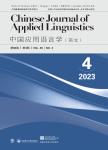Mindscape and Its Effect on Cities' Sustainability:A Case Study of Bronzeville Neighborhood—Chicago
作者机构:Landscape Architecture + Urbanism Program Illinois Institute of Technology Illinois Institute of Technology
出 版 物:《Chinese Journal of Urban and Environmental Studies》 (城市与环境研究(英文))
年 卷 期:2023年第11卷第3期
页 面:88-116页
学科分类:12[管理学] 1204[管理学-公共管理] 02[经济学] 0202[经济学-应用经济学] 0830[工学-环境科学与工程(可授工学、理学、农学学位)] 083001[工学-环境科学] 08[工学] 020202[经济学-区域经济学] 0833[工学-城乡规划学]
主 题:Mindscape sustaining regeneration Bronzeville collective memory social participation
摘 要:Neighborhoods and urban contexts are full of potential hidden inside them in an intangible form and can be used for their development and sustainability. Therefore, studying, discovering, and using them can help revive worn and historical textures. These mental factors include things not in the city’s outward appearance but in its heart and memory. The mindscape of the city includes everything that has meaning for its residents. Collective memories lead to strengthening their sense of belonging. The sense of belonging and collective memory is one factor that promotes social participation in the neighborhood and urban contexts. Social involvement is an efficient factor in facilitating neighborhood management, attracting investment, and helping environmental issues. Finally, it plays an influential role in sustaining life in urban contexts. Despite the plans that have been made to promote the sense of collective memory and increase the sense of belonging to the place, Chicago’s Bronzeville neighborhood has yet to achieve its growth and prosperity as in the past. Therefore, this paper focuses on studying how mindscape can help the sustainability and development of cities. The research method in this paper is based on document study, the review of documents related to prominent research in the fields of objective landscape,place identity, sense of place, and surface, and was carried out by descriptive-analytical research method. The method of collecting information is in two forms: documentary and field. Field information will be collected through two questionnaires(see Appendices A and B) from residents and experts. In this research, after reviewing and studying the documents and analyzing the field data, we present the proposed model of the influential factors of the mental landscape in the sustainability of urban contexts and draw the following conclusions: The concept of the mindscape holds significant importance in the context of creating sustainable cities and communities. It encompasses belonging, collective memories, and factors promoting social participation. Safeguarding and nurturing collective memory, the sense of place, belonging, and social participation are crucial in sustaining the mindscape and ensuring the long-term well-being of urban environments. By prioritizing these elements, cities and communities can foster a stronger connection between residents and their surroundings, resulting in a more vibrant and resilient urban fabric.



